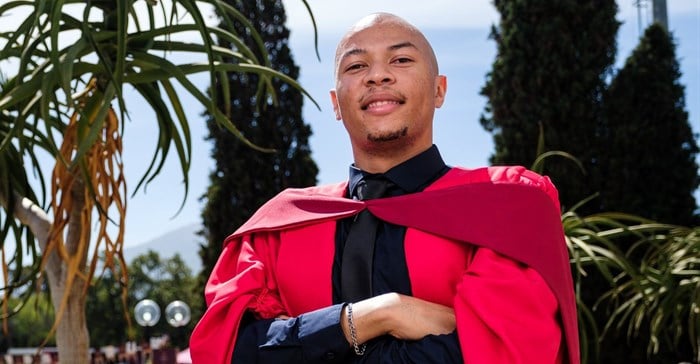Dr Steve Chingwaru, a 26-year-old geometallurgist, has made a discovery that could revolutionise South Africa's gold mining industry and inject billions into its economy. His groundbreaking PhD research, completed at Stellenbosch University, has identified a massive, previously overlooked gold resource hidden within the country's unsightly mine dumps.

Dr Steve Chingwaru graduated with a PhD from Stellenbosch University. Source: Stefan Els/Stellenbosch University
Hailing from Zimbabwe and raised by his aunt in Johannesburg, Chingwaru has mining in his blood. His grandfather, the legendary prospector George Nolan, pioneered lithium discovery in Zimbabwe.
Despite setbacks, Chingwaru inherited a passion for earth sciences and a determination to leave a brighter legacy for Africa.
Unlocking a hidden fortune
Chingwaru's research reveals that mine waste from the Witwatersrand holds up to 460 tonnes of gold – worth an estimated R450bn. This "invisible gold" exists in microscopic particles within other minerals. While low in concentration, dwindling traditional gold reserves are making this resource increasingly economically viable.
Historically, gold extraction from these tailings has been inefficient and environmentally harmful. Chingwaru's PhD work not only pinpoints the vast gold reserves but proposes new extraction methods that could eliminate heavy metal pollution and acid mine drainage – major environmental threats associated with the dumps.
He advocates for processing the pyrite found in the dumps, simultaneously removing the source of pollution and unlocking further valuable by-products like copper, cobalt, and nickel.
Academic rockstar
Chingwaru's work has garnered international attention, with publications in top industry journals and a prominent presentation at a global mining conference. His research is attracting interest from major mining companies who see the potential for both profits and environmental sustainability.
Chingwaru, driven by both personal history and scientific rigour, envisions a future where Africa leads in innovative, responsible resource extraction. He is currently weighing job offers from prestigious research institutes in Australia and Germany.
Yet, he remains committed to serving his continent: "Africa has brilliant scientists. It's time we unlock their full potential and harness discoveries for the benefit of our people."























































